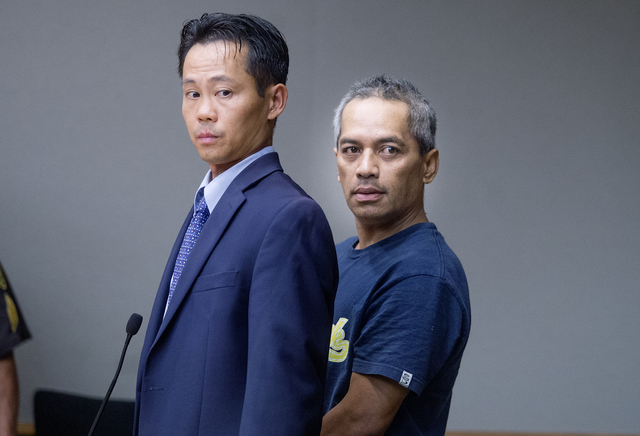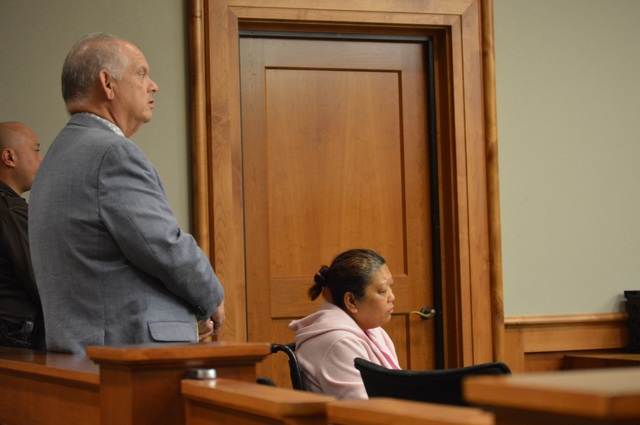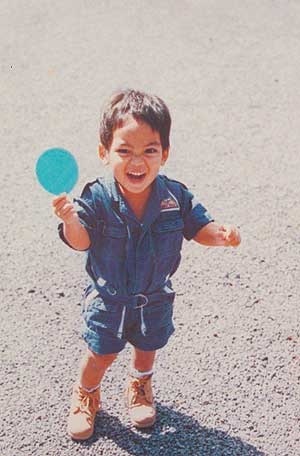The parents accused of killing their abused 6-year-old son in 1997 pleaded not guilty Friday in separate courtrooms. ADVERTISING The parents accused of killing their abused 6-year-old son in 1997 pleaded not guilty Friday in separate courtrooms. Hilo Circuit Judge
The parents accused of killing their abused 6-year-old son in 1997 pleaded not guilty Friday in separate courtrooms.
Hilo Circuit Judge Glenn Hara ordered 46-year-old Jaylin Kema to appear for trial at 8:30 a.m. Aug. 22, while Hilo Circuit Judge Greg Nakamura ordered her 45-year-old husband, Peter Kema Sr., to appear for trial at 9 a.m. Sept. 19.
The Kemas were indicted Wednesday by a Hilo grand jury on second-degree murder charges for the killing of Peter Kema Jr., aka “Peter Boy,” whose body has never been found. The indictments allege both parents were present “at the scene of multiple crimes of assault upon” Peter Boy.
The documents also state the Kemas knew the boy “was suffering from serious physical harm as a result of the assaults” and “intentionally or knowingly caused” Peter Boy’s death “by voluntarily omitting to perform a duty imposed by law” to seek police or medical assistance.
Both Kemas were ordered by the judges to not contact the state’s witnesses in the case — Peter Boy’s siblings, Allan Acol, Chauntelle (Acol) Woods and Lina Acol — if they are freed on bail.
Peter Kema’s arraignment was straightforward and brief. Deputy Public Defender Jeff Ng said his office would be withdrawing from the case because of a conflict, which means a court-appointed private attorney will be provided for Kema.
Kema is in custody at Hawaii Community Correctional Center in lieu of $500,000 bail.
Jaylin Kema’s arraignment hearing was longer, livelier and a bit contentious.
When Hara asked Deputy Prosecutor Rick Damerville how long he thought trial would take, Damerville replied, “I’m too old for long trials, judge.”
“I think the state’s case would be put on in two weeks,” he said. “I would expect the defense would probably be another week if a mental health … defense is not run. If a mental health … defense is run … I would expect the trial to last four weeks.”
Brian De Lima, Jaylin Kema’s court-appointed attorney, disagreed, telling the judge, “I would think the jury selection would take at least two to three weeks.”
Hara set aside six weeks for trial.
De Lima said there are “over 4,000 pages of discovery” in the case and asked for 10 weeks before trial to file pretrial motions, which is longer than the usual six- to eight-week period.
Damerville told the judge that unless the defense waives its right to a speedy trial, the long pretrial motion period could cut into the state’s time to prepare for trial.
“By eight weeks (before trial), they should be able to decide whether they’re going to file a (mental health defense) motion,” he said. “I don’t want a (mental health defense motion) coming on the end of the pretrial motion deadline, which is now July 8, for a trial that’s set for Aug. 22.”
“You know, judge, it took 20 years (for the state) to make these charges,” De Lima countered. “I don’t think we should be deciding her defense based on an artificial, arbitrary date.”
Hara granted the 10-week pretrial motion deadline.
“Mr. De Lima, I’m treating these dates as subject to refinement as we get more information,” the judge said. “So, I think to get the case moving, we need to set some initial deadlines, and that’s what they are.”
Jaylin Kema uses a wheelchair, having lost part of a leg to diabetes. De Lima told the judge she’s unable to post her $150,000 bail and requested she be placed on supervised release because of her health.
“She has a prosthesis scheduled to be provided to her, and if she’s unable to return to her residence, she’s probably going to lose the ability to have that housing available to her,” he said.
Damerville at that point requested he and De Lima be allowed to confer with the judge privately at the bench. When they returned, Hara upheld Jaylin Kema’s bail. She’s also in custody at HCCC.
The prosecutor noted that in addition to the grand jury that indicted the Kemas, an investigative grand jury looked at the case in 2003. The transcripts of both proceedings, which were secret, will be unsealed and provided to the defense.
Email John Burnett at jburnett@hawaiitribune-herald.com.





